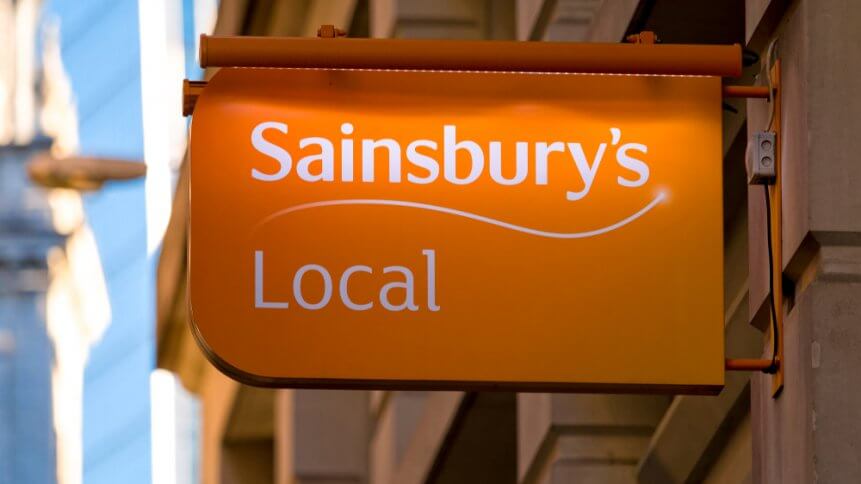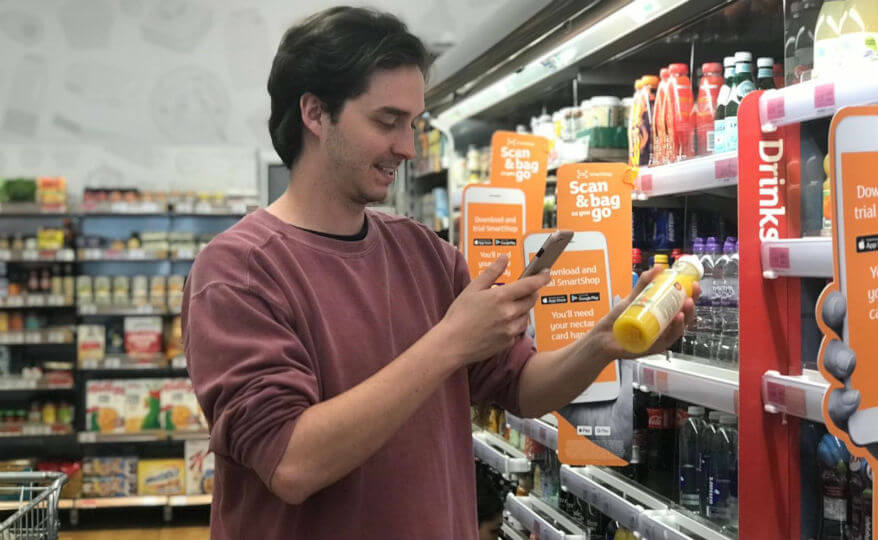Are till-free stores the way forward?

Whilst the likes of Amazon Go and the recent launch of a Sainsbury’s till-less store in London are undeniably impressive, many consumers still prefer the reassurance of human interaction. And this need should not be ignored.
Some people just want to pay for their items and go. Others, however, enjoy their interactions with checkout operators, advice from a shop assistant, or just bumping into a friend in the local supermarket queue.
The Sainsbury’s store is situated in Holborn, London. Whilst others have offered self-checkout by app before, this is a UK first in that you can only checkout this way.
As part of a three-month trial, customers scan and pay for their groceries using the SmartShop app (they must have a Nectar card in order to take part). But don’t worry if you’re old school. Those struggling with the system can still pay by cash or card at a helpdesk.
TechHQ ventured along last week. The store looks like it will be popular with regular, small basket shoppers once they’ve gone through the initial process of getting a Nectar card and hooking it up to smartphone payment. It’s worth noting that there were plenty of people at the helpdesk, both asking for assistance with this and wanting to pay with cash or card. So not quite friction-free yet.

Customer shopping at Sainsburys Holborn Circus till-free store. Source: Sainsburys
Will Broome, CEO, and Founder of Ubamarket, believes that it is encouraging to see big retailers such as Sainsbury’s venturing down this route. It poses many benefits for retailers and consumers alike, he argues.
As shoppers, we value our time, and technology is essential in speeding up the in-store experience. Broome cites Ubamarket research showing that 53 percent of shoppers prioritize convenience as they shop in stores.
This technology has the capacity to save them money as well as time. Personalized in-store offers and real-time loyalty updates are made possible and it is essential that retailers implement these additions. If you want to digitalize shopping, then you should allow shoppers to add their shopping lists to apps, be guided around stores and get more information about products.
YOU MIGHT LIKE

Connected retailers get closer to customers
Blending old and new
But while technology has a key role to play, it cannot be a panacea. Clearly, new solutions will only work if they solve genuine problems.
In a recent article, TechHQ argued that there should be a focus on providing the right payments mix for shoppers. And right now, that involves the old and the new, particularly for those independent retailers distinguishing themselves via the human touch and excellent customer service.
There’s an argument that Amazon has forced traditional retailers to up their games. But there’s also a counter-argument that some have taken their eyes off the ball after becoming too focused on trading punches with the e-commerce giant.
Sainsbury’s, for instance, this past week attracted criticism after reporting a 41.6 percent fall in pre-tax profits, weighing in at £239 million (US$311 million), for the 52 weeks to March 9, 2019.
It said that it was accelerating its investment in technology. Highlights included: rolling out SmartShop to over 100 supermarkets; Pay@Browse available in 162 Argos stores, enabling customers to pay without queuing; Trialling digital Nectar in Wales ahead of a broader roll-out later in the year.
All commendable initiatives in these fast-moving digital times. But of equal importance is getting the basics right. As many disgruntled Sainsbury’s customers will tell you, the retailer needs to recognize that store standards have fallen way below acceptable levels, e.g. badly stocked and untidy.
It’s encouraging to see planned investment in the estate, with 400 stores set to get much-needed facelifts. The proposed merger with Asda was clearly a major strategic distraction, but that has now been kicked in to touch by the Competition and Markets Authority, which could actually be a blessing in disguise.
Be innovative, yes, but also be practical.








